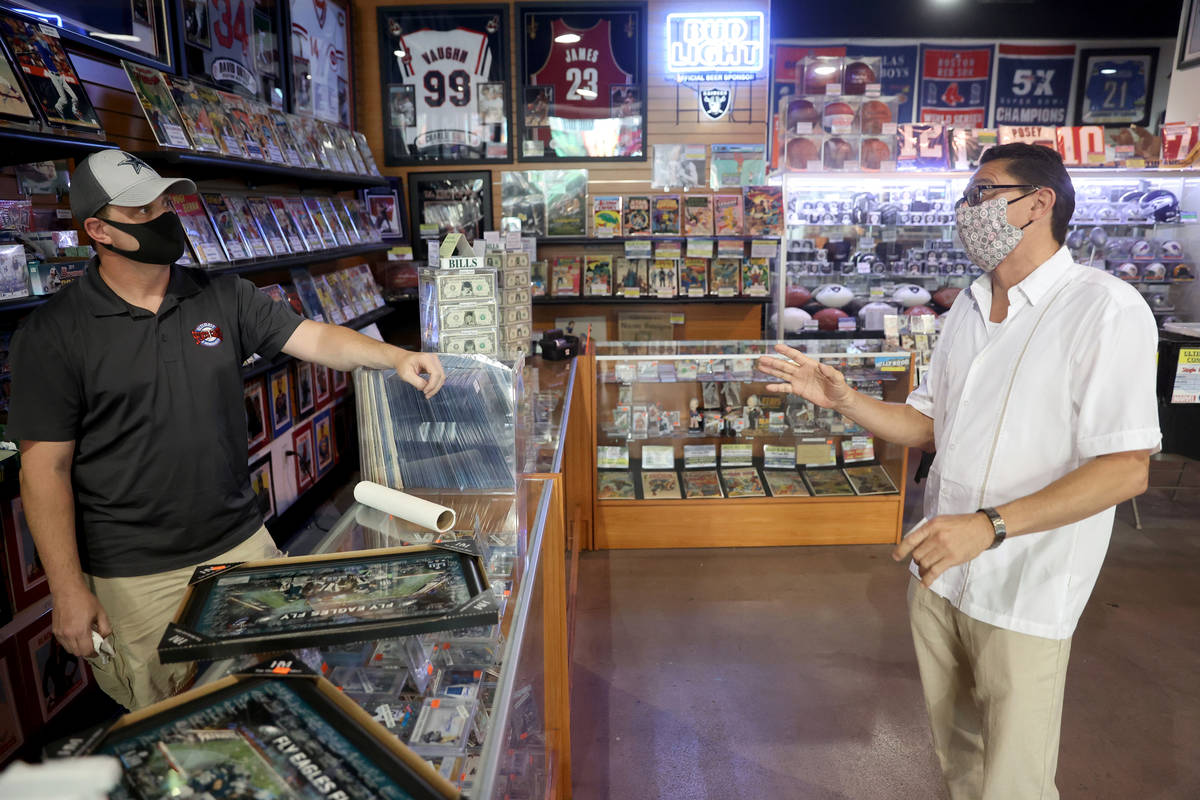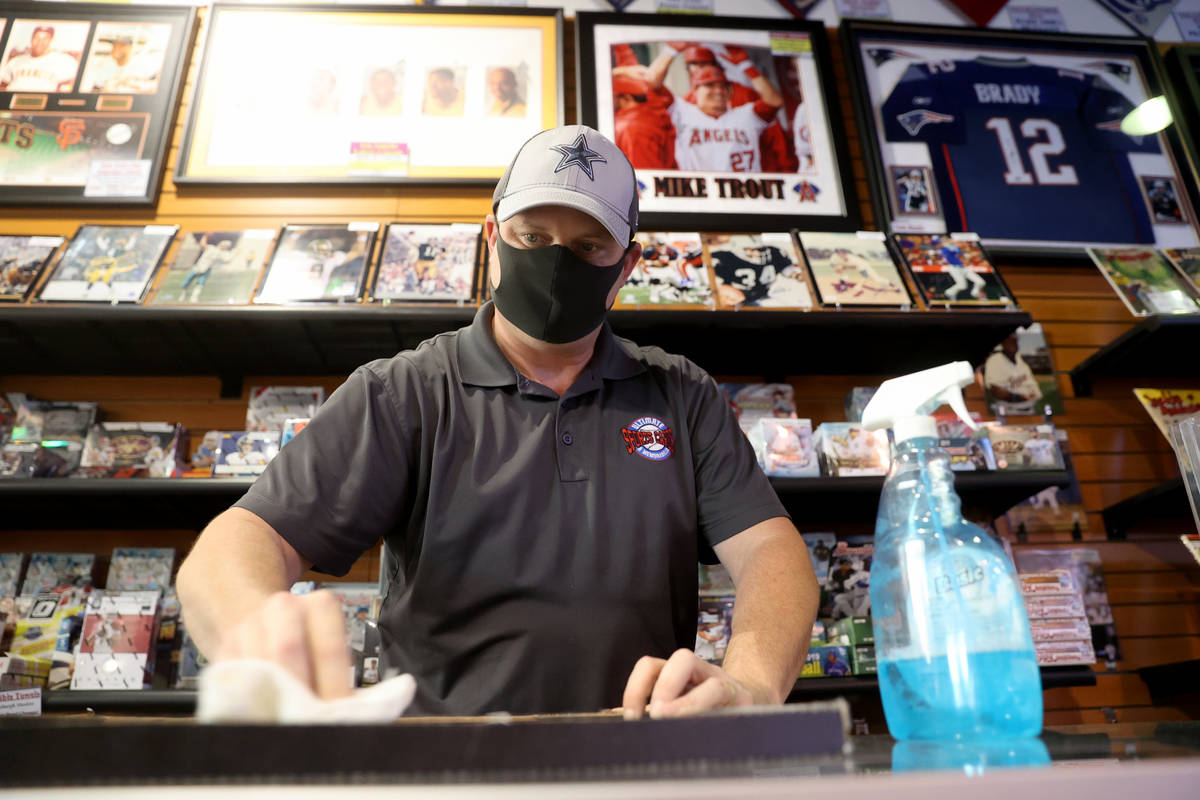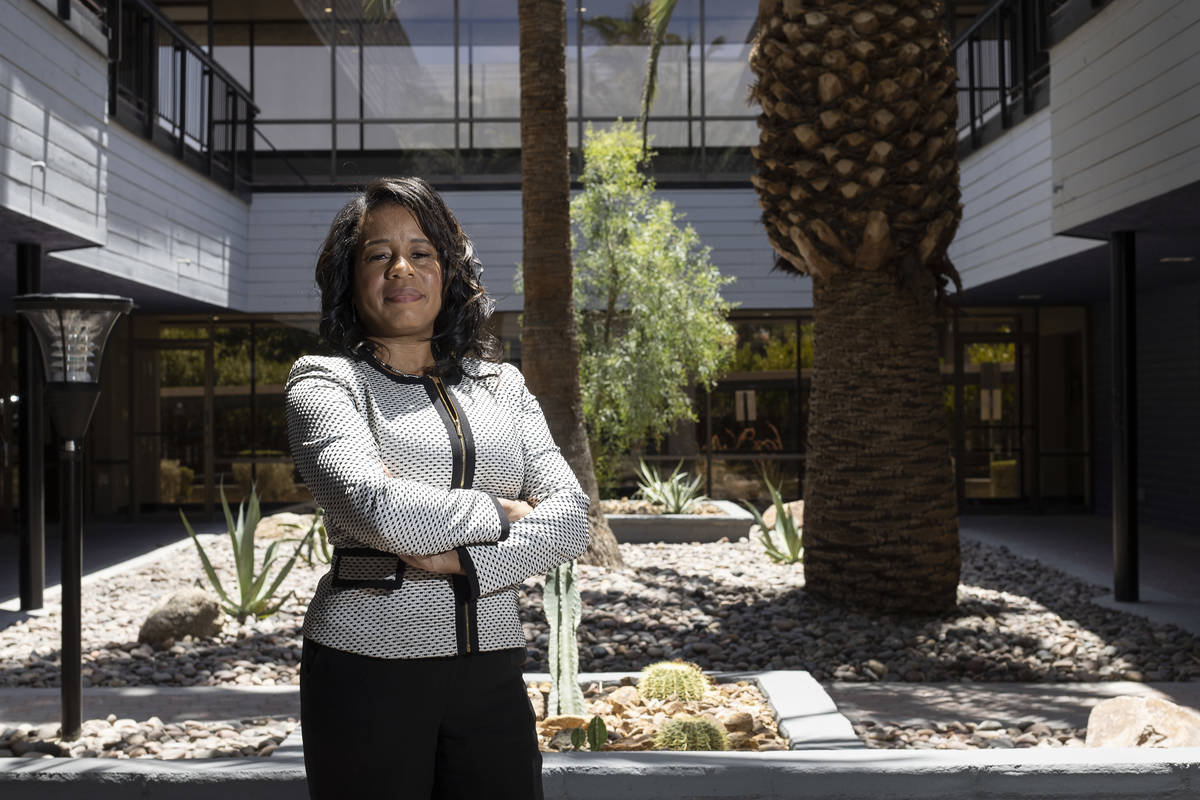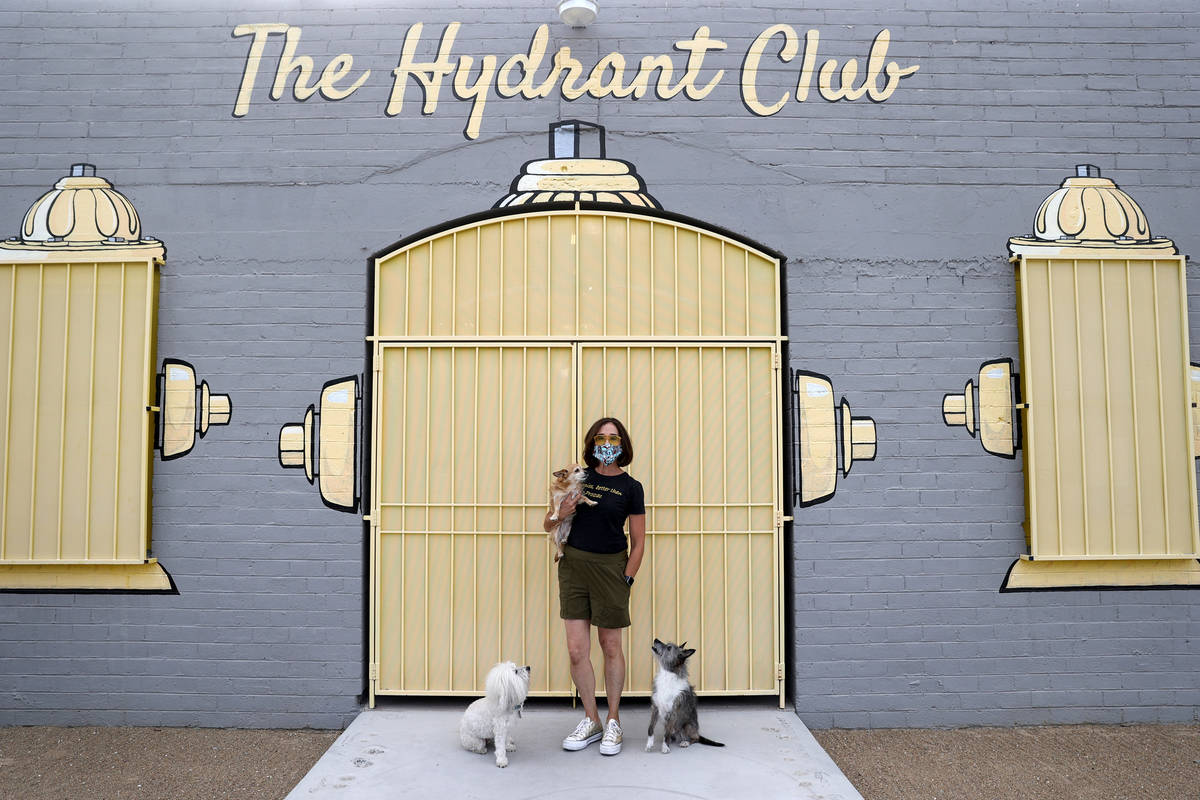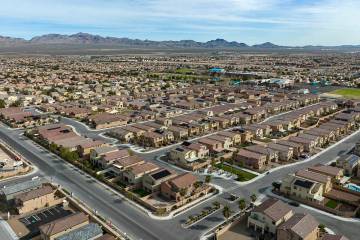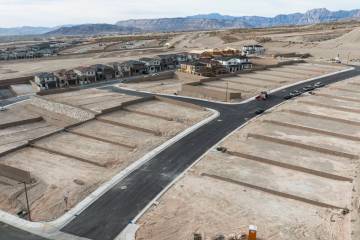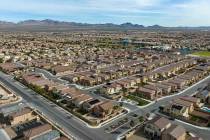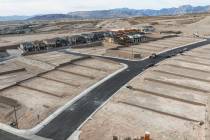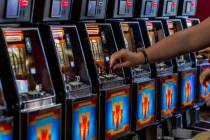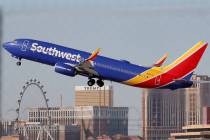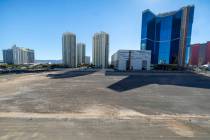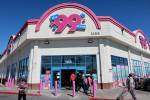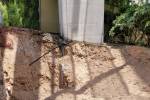Some business owners concerned about 2nd COVID-19 shutdown
She’s preparing to be right but hoping to be wrong.
Cathy Brooks is putting away money wherever she can. She’s reduced hours, dropped property landscaping from weekly to biweekly and paying her friends to do the handiwork at her business — or just doing it herself. Her membership-based dog training academy, the Hydrant Club, 109 N. Ninth St., survived the first statewide shutdown over the COVID-19 pandemic.
She’s trying to position her business to survive a second.
“(Looking back) a year from now and there isn’t a second wave, and all of the worry about it was just that, a worry, I’ll be the first person to raise my hand and say, ‘I was wrong,’ ” Brooks said.
Denette Braud would’ve preferred staying closed for another two weeks if it meant preventing the further spread of the novel coronavirus.
“I think we opened too soon and people think we’re back to normal,” said Braud, owner of Braud’s Funnel Cake Cafe in Town Square.
She had a backup plan to help her survive the initial shutdown.
“Thank God we’re hanging in there,” she added.
Brooks and Braud aren’t alone. A U.S. Chamber of Commerce and MetLife poll taken between May 21 and May 27 found that two-thirds of small-business owners surveyed are “concerned about having to stay closed, or closing again, if there is a second wave of COVID-19.”
The same poll found that 71 percent of small-business owners are concerned about prolonged closure causing financial hardships for their business.
Braud said she’s trying to stay positive and control what she can control, but it’s hard to ignore the possibility.
“Of course it is a concern, because we’re already seeing an uprise,” Braud said.
Second wave?
The number of COVID-19 cases and hospitalizations is once again climbing in Nevada and across the country.
Nevada’s COVID-19 response director, Caleb Cage, said the state’s upswing isn’t yet due to a “second wave” and is likely a result of increased testing access.
Neighboring Arizona and Utah are also in the midst of a surge in COVID-19 cases a couple of weeks after relaxing business restrictions. A county health official in Arizona expressed concern that more testing wasn’t the sole factor for the spike.
“We’re getting reports of almost 600 cases per day, compared with almost 200 cases per day two weeks ago,” Maricopa County Public Health spokeswoman Sonia Singh said Wednesday. “We know it’s not just more testing, but an increased spread.”
Nationally, 21 states are also seeing a jump in hospitalizations and cases since Memorial Day, according to an Associated Press analysis published last week. On Monday, the U.S. documented more than 2 million cases of COVID-19, with more than 115,000 deaths, according to the Centers for Disease Control and Prevention.
States may need to reintroduce shutdowns and the other mitigation efforts they’re now shedding if the number of new cases rises “dramatically,” CDC deputy director Jay Butler said at a news conference Friday.
Gov. Steve Sisolak’s medical advisory team hasn’t discussed whether a second wave could facilitate a second shutdown because the state is still dealing with the first wave and shutdown, according to Brian Labus, a member of the team and an epidemiologist at UNLV.
The scientific community is “justifiably concerned” about the disease continuing to spread as states reopen, he said, while adding it’s impossible to know the circumstances come the fall.
“Unfortunately, the virus is driving the timeline, and the best we can do is make decisions based on the changes,” he said.
Social distancing, capacity and mask requirements for reopening businesses are in place to help curb the virus’s spread, but they’re only as useful as they’re followed, Labus said. The public must understand that the pandemic isn’t over just because businesses have begun to reopen, Labus said.
“Heading in the right direction doesn’t mean we’ve arrived yet,” he said.
Top of mind
The “second wave” may not have yet arrived, but the concerns certainly have.
Fears of a second shutdown have gripped many of the 25 businesses that accountant Lydia High manages. She said that thought is “at the forefront of their mind every day.”
High, owner of Precise Business Management at 1785 E. Sahara Ave., represents restaurants, retail shops, churches, nonprofit organizations and people in the entertainment industry. Clients are unsure whether to bring back all of their employees, and some are just trying to get their customers back without bringing the novel coronavirus with them, she said.
High said she’s ensuring that her clients have plans for what to do if the virus enters their business or if they’re again forced to close. Some business owners may have to re-evaluate and consider starting over, said High, also a finance instructor at UNLV.
The true impact of the pandemic and related shutdowns on businesses won’t be clear until the third and fourth financial quarters, she said. By then, barring another batch of financial aid for businesses, federal loans will have run dry and businesses will learn whether they will survive the impact’s of the March shutdown, High said.
Another shutdown, especially without further federal financial help, would prove devastating, she said.
“I don’t think a lot of businesses are going to come back from this crisis that we have, but the ones that do come back won’t be able to survive another hit,” High said.
The executive director of a nonprofit network of downtown businesses said owners were left scared and scrambling for answers when the pandemic first struck the valley. The Downtown Vegas Alliance has since provided resources, tools and strategies to its member businesses, better equipping them to survive the shutdown’s lasting effects and a possible second wave, Carolyn Wheeler said.
“All of that I think will help them in the case that something happens,” Wheeler said, adding that she’s not concerned about a second wave at this point.
Jeremy Brown, owner of Ultimate Sports Cards and Memorabilia in Neonopolis, said he doesn’t anticipate another shutdown on the same scale as Nevada’s in March.
He said he hasn’t made any coronavirus-related changes to his business aside from those safety and cleanliness procedures required for him to reopen. Brown said he generally considers himself a proactive person, but “not one of the Y2K, sky is falling (types).”
He hasn’t made any specific preparations for a surge in cases and a possible return to shutdown conditions. Maybe it’s naivete, Brown said.
“Concerned? Yes. Worried? No,” Brown said.
Plan B
Creativity represents a survival tactic for business owners during the pandemic. Brooks’ Hydrant Club began offering a free, 30-minute online training class on Fridays that she plans to continue after the country gets a handle on the virus.
The increased online presence has been a lifeline in keeping her business afloat, she said.
Her online classes have reached a wider audience and attracted new customers to her typically choosy business, Brooks said. They also help her keep down traveling costs and free up more time for more Zoom calls with her customers.
“The only reason I need to be in a room with a dog is because, quite frankly, I like being in a room with a dog,” she said.
She expanded her retail sale from her private customers to the public and began offering curbside pickup services.
Brooks said those changes and federal loans have buoyed her financially, but she’s still trying to save money in the event of a second shutdown.
Brooks is concerned for what she called “a real shutdown” like the hard lockdowns in Italy, where people weren’t allowed to leave their homes without a legitimate reason.
She fears Las Vegas’ tourism-driven economy means it’s “dubiously positioned” to be a catalyst for a second wave, particularly as she expands her services and Nevada reopens its businesses. Preparation is prudence, she said.
Braud said it’s hard to completely prepare her funnel cake business for a second shutdown without knowing what will happen.
She was closed for more than a month but has since reopened with limited hours and curbside pickup. She pivoted to a mobile, food truck business model during the pandemic, which she said is her “Plan B” for another shutdown.
“We’re still open and surviving, and how can you complain about that?” Braud said.
Contact Mike Shoro at mshoro@reviewjournal.com or 702-387-5290. Follow @mike_shoro on Twitter.



